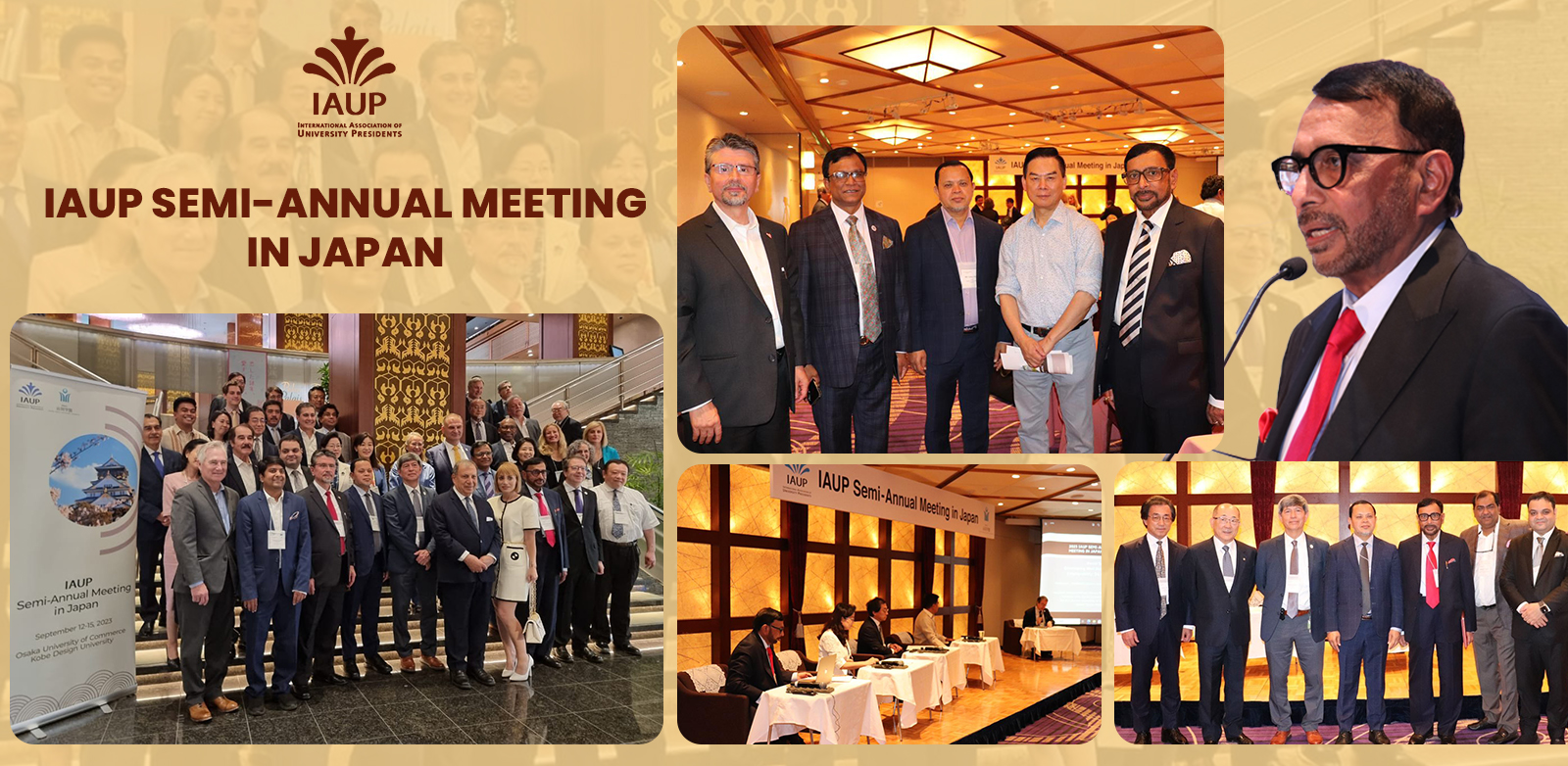Address at the IAUP Semi-Annual Meeting JAPAN
On September 13th, 2023, I had the privilege of attending The International Association of University Presidents (IAUP) Semi-Annual Meeting in JAPAN. The Meeting was scheduled from September 12th to 15th, hosting tours ranging from cruise, Academic tours, and panel discussions.
Divided into five parts, it started with the Opening ceremony welcomed by Dr. Yoshiaki Obara-Chairman of the Association of Private Universities of Japan, Dr. Ichiro Tanioka, Chancellor of Tanioka Gakuen Educational Foundation Dr. Fernando León-García, President of IAUP and President of CETYS University (Mexico) Dr. Kakha Shengelia, Chairman of IAUP and President of Caucasus University.
The event also welcomed insightful minds like Dr. Mureo Kasahara – Chief Pediatric Liver, Kidney, and Pancreas Transplant Surgeon and Director of NCCHD- National Center of Child Health and Development at Tokyo, Japan, Engr Abubokor Hanip – Chancellor of Washington University of Science and Technology and Dr. Hasan Karaburk – President of WUST.
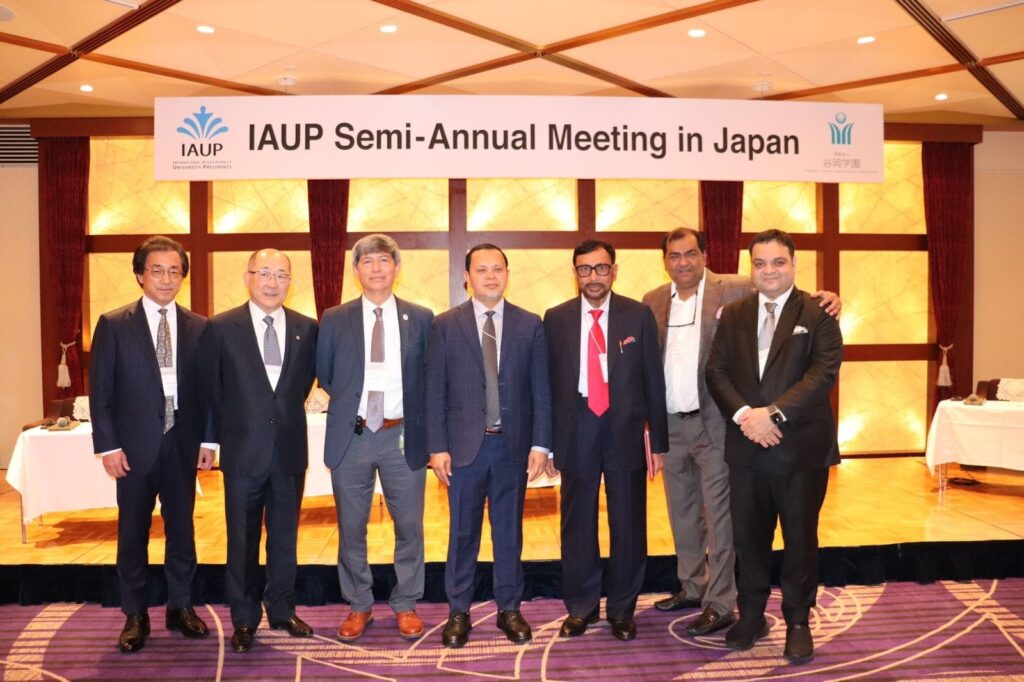


The Central theme of the Meeting was to ‘Transform Global Higher Education.’ The Meeting delved into enlightening panel sessions, graced by remarkable experts from around the world. It also embraced Osaka’s rich cultural heritage and afforded IAUP member institutions the opportunity to formalize collaboration initiatives with their fellow panelists.
The initial address to the first session of the Meeting began on the topic ‘Transformational Leadership in Higher Education’ with Moderator – Dr. Fernando León-García, President of IAUP and President of CETYS University (Mexico), followed by Lethokwa Mpedi, University of Johannesburg (South Africa), Shawn Chen, SIAS International University (China), Tomás Morales, California State University (USA) and Antonio Leaño, Universidad Autónoma de Guadalajara (México).
The second session called attention to the topic ‘Developing Well Rounded Graduates and Employability: Do we have to choose?’ with key highlights from Moderator – Dr. Fernando Galván- Secretary General and President- Universidad Alcalá de Henares (Spain), Assylbek Kozhakhmetov, Almaty Management University (Kazakhstan), Takahiro Ono-President of Kyoto University of Foreign Studies (Japan), Xie Hui, Hunan University of Science and Technology (China) and included myself representing Nims University Rajasthan.

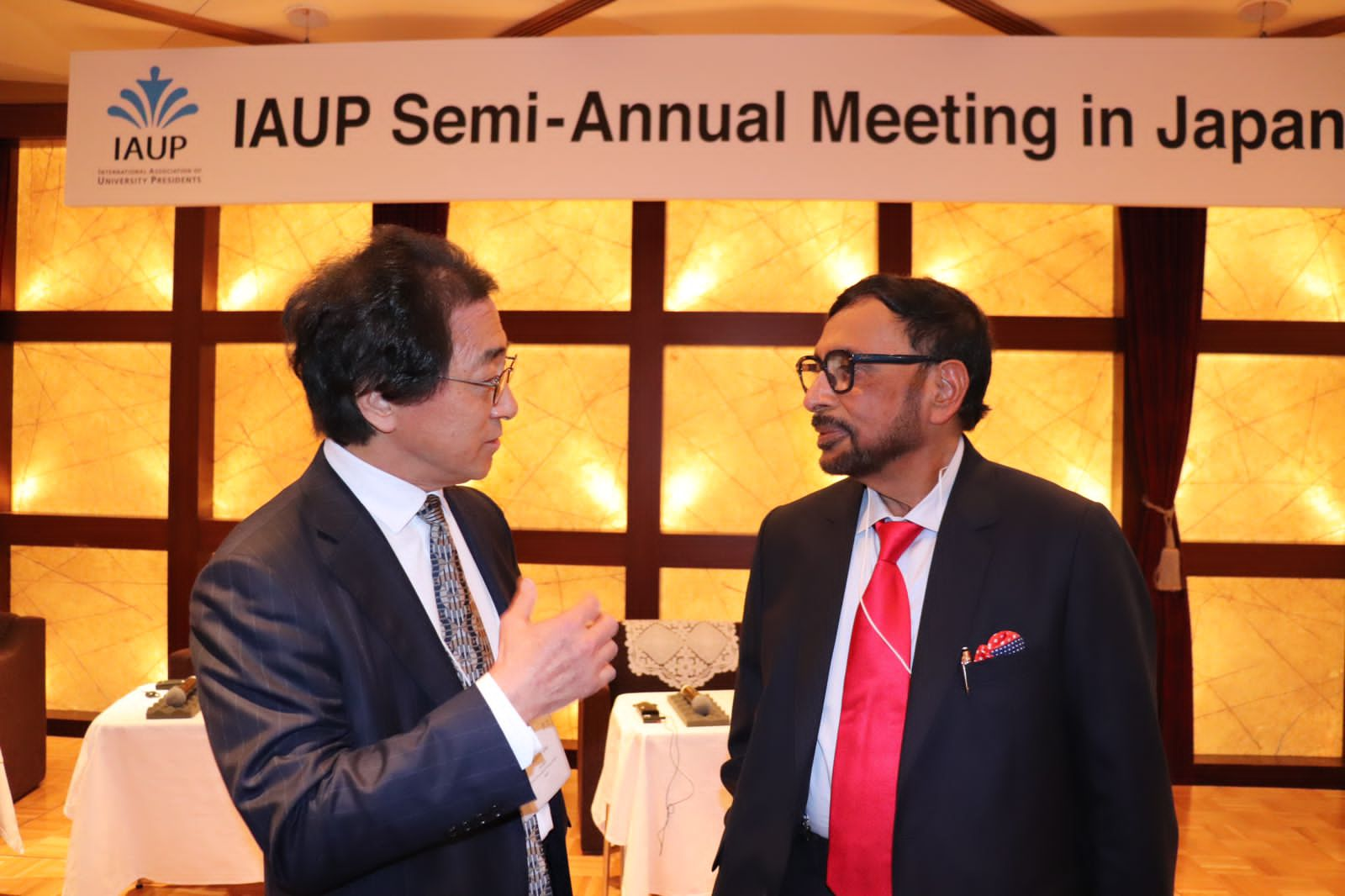
As the session set the stage for my dialogue; I was summoned to address the board audience. I felt overjoyed to venerate an event that is truly a milestone in the pursuit of promoting global higher education. As an academician, I felt a need to address the youngsters on the importance of Employability and the three categories that follow it. The first category focused on aligning skills with employer needs, the second category concentrated on the best practices for integrating employability skills into the curriculum, and the most crucial category centered on the contributions of the universities to entrepreneurship.
The conference, with my own dialogues and observations, stressed the significance of preparing graduates for the swiftly changing job market. I outlined 15 essential analytical skills that cover cognitive, methodological, and social facets of Employability, emphasizing the need for a comprehensive education that transcends mere academics. These proficiencies play a pivotal role in enabling graduates to succeed in their careers and navigate the continuously shifting dynamics of the workplace.
I extensively discussed the various facets of enhancing Employability, stressing their equal significance at the institutional level. Universities must align their curricula with regional, national, and global standards. Moreover, they should collaborate with employers to facilitate the convergence of education and industry needs, enhance Employability by integrating entrepreneurial concepts and opportunities, and employ practical tactics such as organizing placement drives, seminars, and career-related events.
I continued, further focusing on the encouragement of institutional progress when it is about Employability and that the students need more than mere preparations for placements and fresh jobs, and the goal should be to make them ready for the ever-evolving market scale that promotes a lifetime of learning and growth.
Moreover, I majorly defined the notion of developing Employability on the Institutional Level, shedding light on some fundamental pointers to focus on.
The components include:
- The institution itself – assessing its requirements, both regionally and nationally.
- Employer involvement – aligning educational content with real-world demands and recognizing the needs of entrepreneurs.
- Improving students’ Employability – offering them entrepreneurial insights and opportunities, as well as contributing to the establishment of new businesses.
- Delivering the most up-to-date advancements to students – through placement drives, workshops, and career fairs.
I also emphasized the importance of E-Portfolios, stating that they are crucial in today’s context. With the fast-paced evolution of education and job markets, E-Portfolios have become essential. As we move further into a highly digitalized world, the demand for E-Portfolios continues to grow. They play a significant role in expanding the reach and effectiveness of digital badges, keeping individuals current, and assisting in personal branding that aligns with their future aspirations.
It also gave me immense delight to confess that NIMS University joined forces with Washington University of Science and Technology, signed by Engr Abubokor Hanip – Chancellor of WUST, and Dr. Hasan Karaburk – President of WUST, and National Center of Child Health and Development at Tokyo, Japan signed by Dr. Mureo Kasahara – Chief Pediatric Liver, Kidney, and Pancreas Transplant Surgeon and Director of NCCHD to create better opportunities for students in the near future.
I continued, “For graduates, they should understand their personal responsibility for Employability. One should be proactive and at the forefront while applying for internships, taking part in extra-curriculums and self-improvement.”
“Accumulating knowledge stands as one of the most invaluable assets you can attain. This acquisition aids in nurturing a range of skills, such as interdisciplinary competence, digital literacy, soft skills, teamwork, adaptability, and beyond. It is imperative to commence career planning early in a student’s academic journey. Those students who opt to work while pursuing their university education emerge as genuine agents of positive transformation in our world. Therefore, when selecting your career path, ensure it encompasses a diverse set of skill-oriented fields.”
I concluded with, “Universities provide an extensive array of resources to assist students in their career growth. Students need to make the most of these university resources to enhance their Employability. Starting career planning early in a student’s academic journey is crucial. Those who choose to work while pursuing their university studies play a significant role in bringing about positive changes in our world. When selecting your career path, ensure you have a well-rounded portfolio of skill-focused fields.”
After my conclusion, the discourse was taken over by the panelists of the Third Session on the topic, ‘Women’s Leadership: Challenges and Opportunities’ addressed by Moderator Ramu Damodaran- Format Secretary of General Assembly on Informatics at UN New York and Permanent Observer of UN Peace University Costa Rica, Elizabeth Stroble, Webster University (USA), Carmen Lamagna, American International University (Bangladesh), Devorah Lieberman, University of Laverne (USA), Eun-jo Lee, Seoul Cyber University (Korea).
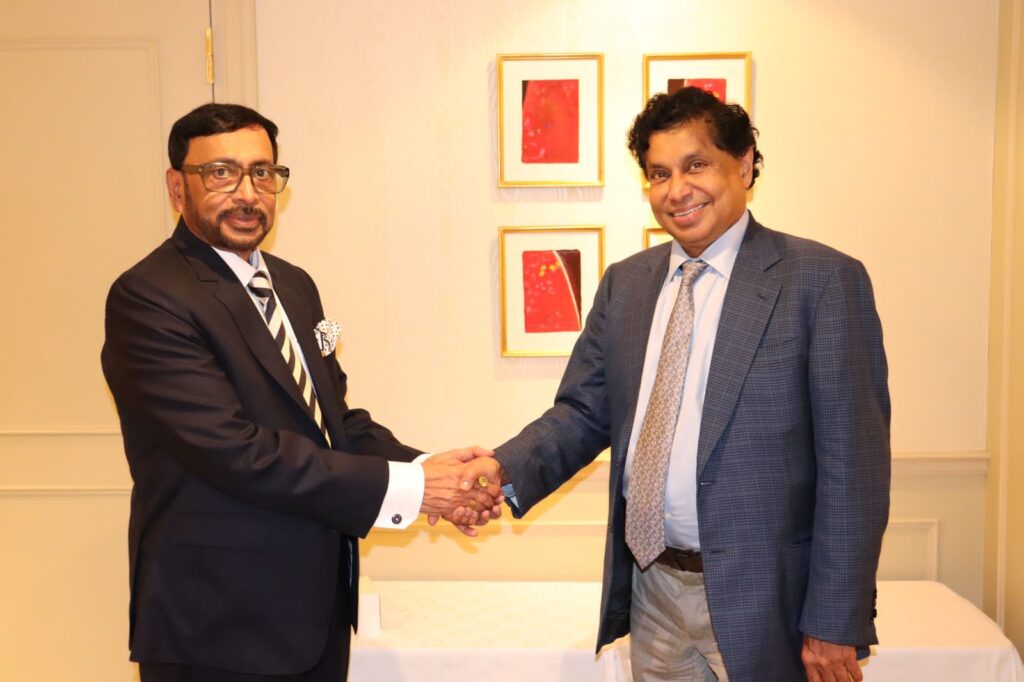
Further, the podium was administered for two more sessions titled ‘The Changing Dynamics of Higher Education: A Comparative Perspective on Enrollment Trends’ and ‘AI, Chat GPT, and Technology: Temporary or Here to Stay?’ respectively. The representation was approached by Moderator Gerald Reisinger, University of Applied Sciences Upper Austria (Austria), Dr. Ichiro Tanioka- Chancellor of Tanioka Gakuen Educational Foundation (Japan), Dr. Sabur Khan- President AUAP and President- Daffodil International University (Bangladesh), Sandeep Pachpande, ASM Group of Institutes (India), Stephen Williams, Nottingham Trent University (UK) with the closing sessions by Moderator, Noe Chirino, CETYS University (Mexico), Randy Frisch, City University of Seattle (USA), Thandwa Mthembu, Durban University of Technology (South Africa), Engr Abubokor Hanip, Washington University of Science and Technology (USA), Ylva Rodny-Gumede, University of Johannesburg (South Africa).
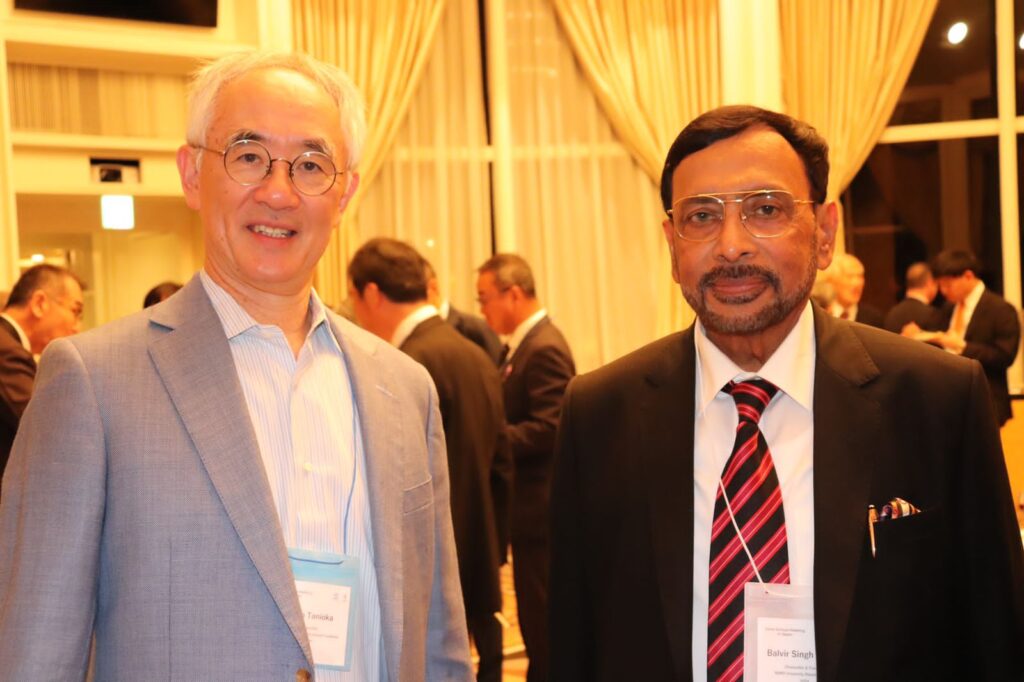
The focus of the conference on international cooperation and the ongoing advancement of educational standards and research emphasize the international nature of employability issues. In a world dominated by corporations and entrepreneurs, universities and educational institutions must play an essential role in guiding students through the process of ideation and implementation. This includes developing critical thinking, specialized abilities, and the capacity to make informed decisions.
By nurturing the sharing of ideas and substantive discussions, the program encouraged global cooperation and made a valuable contribution to enhancing educational standards, advancing research, and cultivating leadership within academia. These endeavors are vital in the progress of higher education and in promoting a more interconnected and knowledgeable global community.

